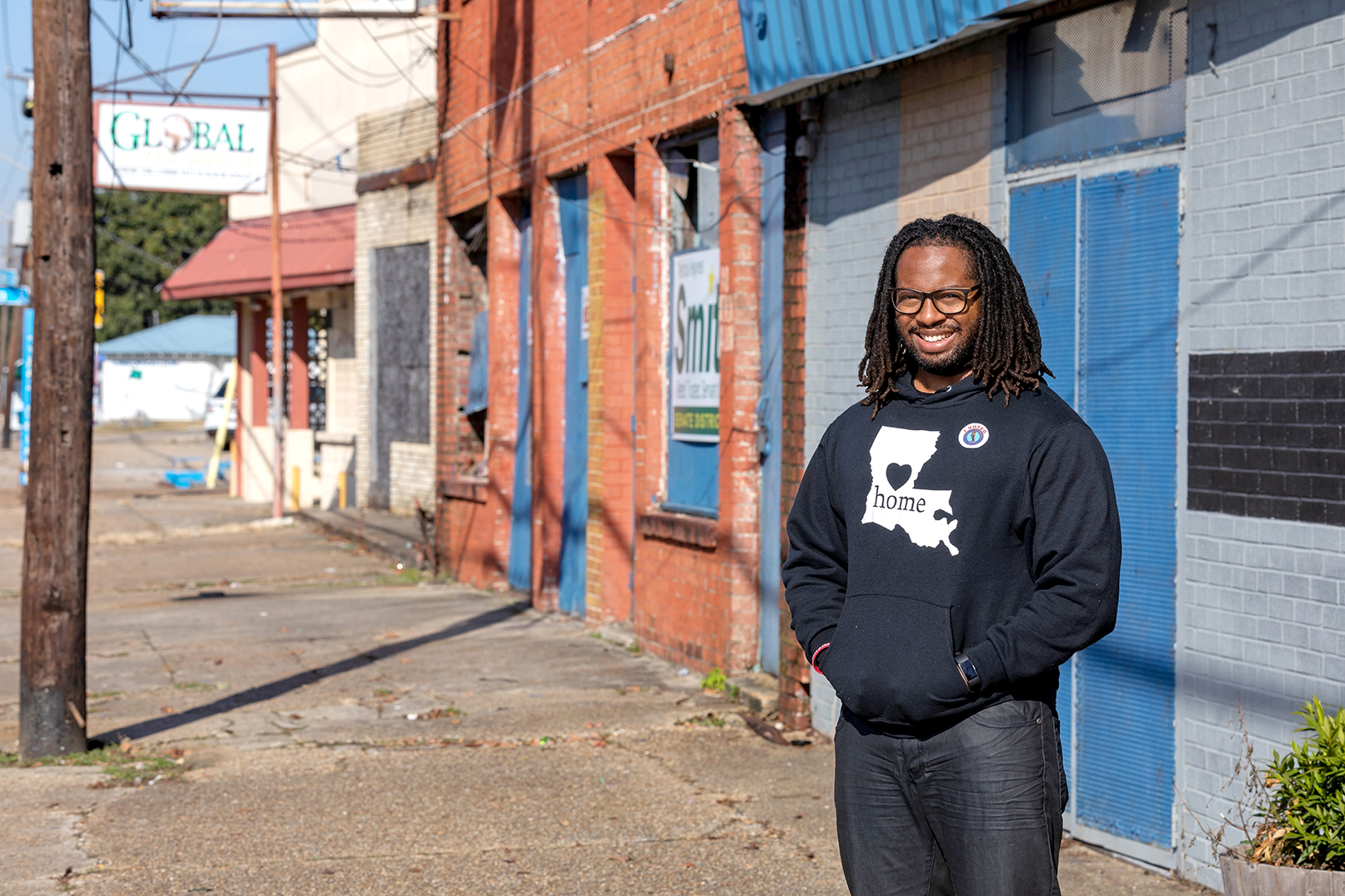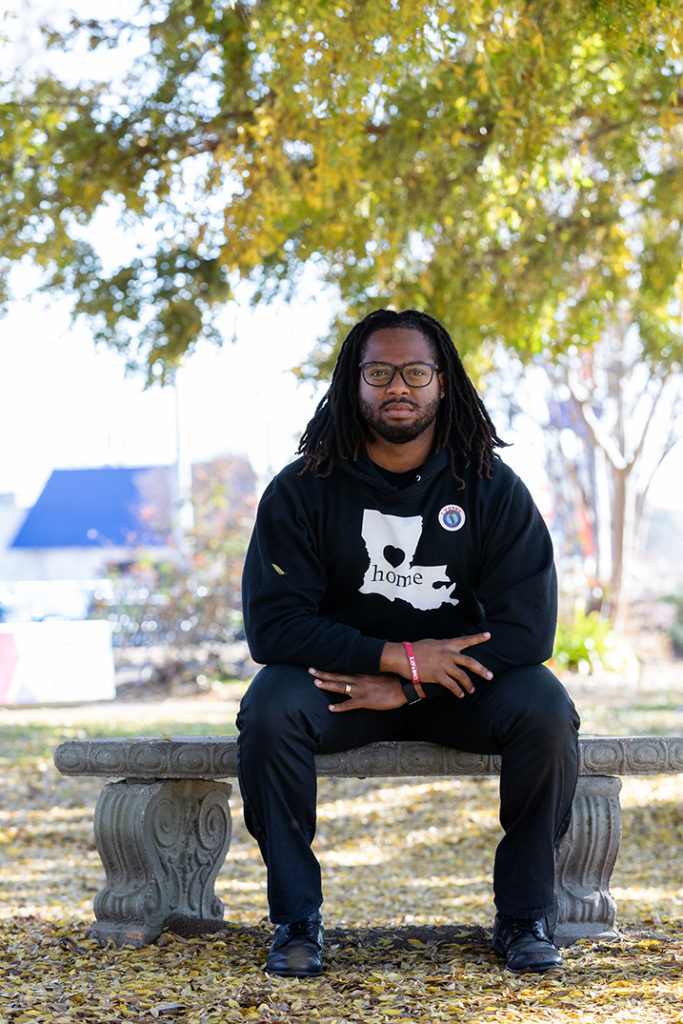
How Byron Washington is helping revitalize Scotlandville
At age 31, Byron Washington is a husband and father. Luckily for north Baton Rouge, he’s also a fierce protector and teacher of history—and a lover of his community.
He’s taken the lead on revitalizing the area: About a year ago, he started Scotland Saturdays, a monthly festive market in Scotlandville featuring small local businesses, food, music and lively conversation.
Scotland Saturdays are all about socializing and showcasing that events like this belong in the heart of north Baton Rouge, he says. The area didn’t have a consistent arts market, he adds, and it deserved one.
“The energy is very community-based,” he says. “It really pursues African American culture, but it’s open to everybody. We have people from all over … people have come from Mississippi before. It doesn’t matter your color or creed, people come and just have a good time.”
Washington is also helping to lead the charge on establishing a Scotla
ndville Historic District. He and his team are surveying different parts of the city, working to assess cultural and historic context. The project recognizes local history, with a particular emphasis on African American stories. But if the historic district is approved at the state and federal levels, there will be economic benefits, too. Business and property owners can revitalize their standing structures through tax credits provided from being a national historic district.
Washington has family in the area, and his wife’s family is from Scotlandville, where the pair now live. He gives credit to his parents for his deep compassion for his community and civic pride, which they instilled in him from birth. His wife keeps him going, too, he says. “She’s the brains behind most of the stuff that I do.”
It’s always been his passion to be involved with projects like the Scotland Saturdays market and the Scotlandville Historic District, especially, he says, serving African American communities. Regardless of the attendance at an event like Scotland Saturdays—whether it’s two people or 200—Washington wants the show to go on and to always be there in Scotlandville.

“A lot of things about African American history in Baton Rouge don’t have the national—or even sometimes the local— reputation they should. Not every person in Baton Rouge knew about the Baton Rouge bus boycott, but now we are recovering that past and putting it outin the public. You see the shadows of the past in north Baton Rouge, and you see the potential for the future. The people here are no different than anywhere else. It’s just the lack of opportunity for equitable resources that hinders progression.”
Byron Washington